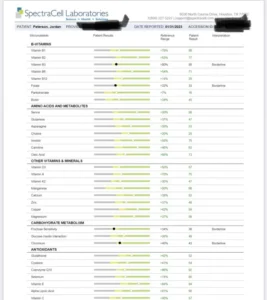I’ll start with a quick overview:
Unsaturated fats:
- Monounsaturated fatty acids have one double bond and polyunsaturated fatty acids have two or more double bonds.
- Foods like vegetable oils are high in polyunsaturated fats.
- Unsaturated fats will be liquid at room temperature because of the double bonds in the carbon chain.
Saturated fats:
- Saturated fatty acids have no double bonds in their molecular structure.
- Food like animal fats are high in saturated fats.
- Saturated fats will be solid at room temperature because there are more hydrogens in the carbon chains.
The medical community is switching over on their view of saturated fats. Right now they seem to be slowly being viewed as healthy. That’s great! It’s slow though, and most medical institutions still tell you saturated fats cause heart disease.

How did the view that a low-fat diet prevented heart disease begin?
One guy who didn’t do his studies properly. Story of modern medicine. Ancel Benjamin Keys was an American physiologist in the 1950’s. He was the one who postulated that saturated fat caused high cholesterol and that high cholesterol caused heart disease. He did a study (The Seven Countries Study) that looked at a number of different countries, and then chose the countries where there was an increased risk of heart disease and a diet high in saturated fats. Then he wrote a paper and told everyone that it was the saturated fats causing the heart disease, ignoring the countries where the information didn’t work. Chile had high rates of heart disease and diets low in saturated fat. And Holland and Norway had low rates of heart disease and diets high in saturated fat. Those countries were left out. This led to the conclusion that unsaturated fats were healthier than saturated fats and that’s when everyone started eating margarine over butter, and the war on meat really began.
Here’s a YouTube video that probably does a better job than I did explaining it.
Here’s a good article also explaining it better than I. And here’s some more information.
My “beef, salt, and water” diet is incredibly high in saturated fats (animal meat will also have some mono and polyunsaturated fats, but not nearly the majority). I’m getting about 80 percent of my calories from mostly saturated fat. Don’t be afraid of saturated fats!!! It’s outdated, and the original information was based on lies.





Hey Mikhaila!
I finally had the guts to do the diet and I’ve been on it for around 70 days. Myositis gone, depression gone (although apathy still exists, but I think that’s due to fatigue), anxiety gone, constant palpitation gone, bloating & most GI issues gone, cognition improved. I’m so grateful that you set me on this path. My health was really bad and it would have only been getting worse. Thank you.
So it’s quite clear that I’ve eliminated all the problematic foods now, considering my progress. But I still struggle with occasional nausea/diarrhea (usually in the evenings), fatigue, brain fog, sleep issues (I keep waking up all the time and my sleep feels really light), my eyes & throat are REALLY dry, I still have eye-floaters and I just generally don’t feel that great.
Now this could be due to some die-off (even though it’s been so long), but I honestly suspect that it’s the cooked meat that’s doing this. Occasionally I’ve been eating blue-rare steaks (seared sides) and they agree with me more. It doesn’t feel forced to eat relatively raw meat, like cooked meat does. Cooked fat also once made me feel reeeaaallly nauseous but I’ve never had that same feeling from blue-rare. But steaks, as you know, are expensive and I can’t afford it. 90% of my diet for the past 1 month or so has been cooked ground beef. Also sometimes after eating I’ve noticed that I don’t feel well at all for a while.
So I’m thinking of going 100% raw. As I can’t afford steaks my only way to go raw is to eat ground beef. There is a ‘provider’ that only feeds the cows grass, let them roam free and they cut their meat by hand (not sure on ground beef though).
So so so many people on this diet seem to be doing it raw and claim that it’s the way to go. They have apparently never got issues, even from commercial ground beef, yet I’m still quite scared of the possibility of the EHEC-pathogen.
What’s your opinion on the raw meat diet? How well do you cook your meat? Do you consider EHEC a real threat? Because the anecdotes really make it seem like there isn’t a threat.
Thanks!!!
Raw meat is the most natural food for us. your body will thank you for it!
just make sure you get your meat from a trusted source!
@fabian
Cheers for the reply. I did it. First day raw ever. It still tastes quite bland but I eat it without any effort (not like cooked) and I get no weird symptoms right after eating. Good signs!
Mikhaila did you used to get PMS before this diet?
For those who want a lot more in depth look at this I highly recommend the book The Art and Science of Low Carbohydrate Living by Volek and Phinney. They cover a lot of this same history, both the history of the bad science and the history of the way ancient humans actually lived. They go into the biophysiology in such detail it feels like a school textbook. Anyway, suffice to say the science is totally there for anyone open to understanding it.
A very important reason the “fat is bad” mantra went into overdrive was the need after WW2 to find markets for the massive amounts of grain and corn being produced by US farmers.
During the war farmers had received huge subsidies to convert their farms to grow grain, and many had done so, in order to feed the military.
In Britain grain and potatoes served the same purpose.
After the war, this threatened to lead to mass surpluses in those products, and a collapse of the agricultural sector.
The governments found this to be something that needed to be prevented at all cost, “we will never have hunger again” was the mantra throughout Europe.
Governments came up with the “food pyramid” (and similar in other countries, all with the same advise) that taught people a “proper diet” consisted of mostly grains and potatoes, with on top of that small amounts of vegetables and even smaller amounts of meat and dairy (which are more labour intensive to produce, so in wartime tend to be scaled back in favour of mass producing grains, grains also being much easier to store long term).
To give the “food pyramid” credibility, medical and scientific “experts” were brought in to make sweeping statements, making overly broad generalisations from “studies” that were nothing of the kind.
Over the decades, as farming subsidies shifted between sectors, categories on the “food pyramid” have shifted in size as well, with for example fruit becoming more prevalent as orchards matured and excess production there became a real possibility.
Dairy too in some countries was given ever greater importance in the 1980s and early ’90s as the EU looked to become flooded in the “milk lake” and “butter mountain”. This was eventually stopped by environmentalists managing to impose strict limits on the size of dairy herds to reduce the amount of manure released into the environment, and dairy became once again villified (coinciding with the hype around lactose intolerance which nobody in Europe had heard of except a minute number of people actually suffering from it until the mid 1990s).
So glad I subscribe. If there is any interest in the high carb low fat thing (for information and historical significance) there was a diet/exercise fad from the late 90s which I followed called “body for life” required so much eating – I would eat 5 huge meals (mainly with brown rice) plus 3 protein shakes, work out hard 6x per week, could never drink booze… thinking back, not only is meat+fat+low carb (or none) is so much less time consuming and life consuming. I feel just as good and am just as thin on the meat diet as I was with the other but on meat and no carbs I have no gas or bloating, unpainful periods, easy bowels, easy time cooking… thanks again for this info. It was a good reminder how much better this diet is.
The ancel keys story is misunderstood but many, please read Denise Minger’s post: https://deniseminger.com/2011/12/22/the-truth-about-ancel-keys-weve-all-got-it-wrong/
Hnmmm interesting. I will look into that when I have more time later today, thanks for the link. Don’t want to spread any misinformation!
Leave a comment